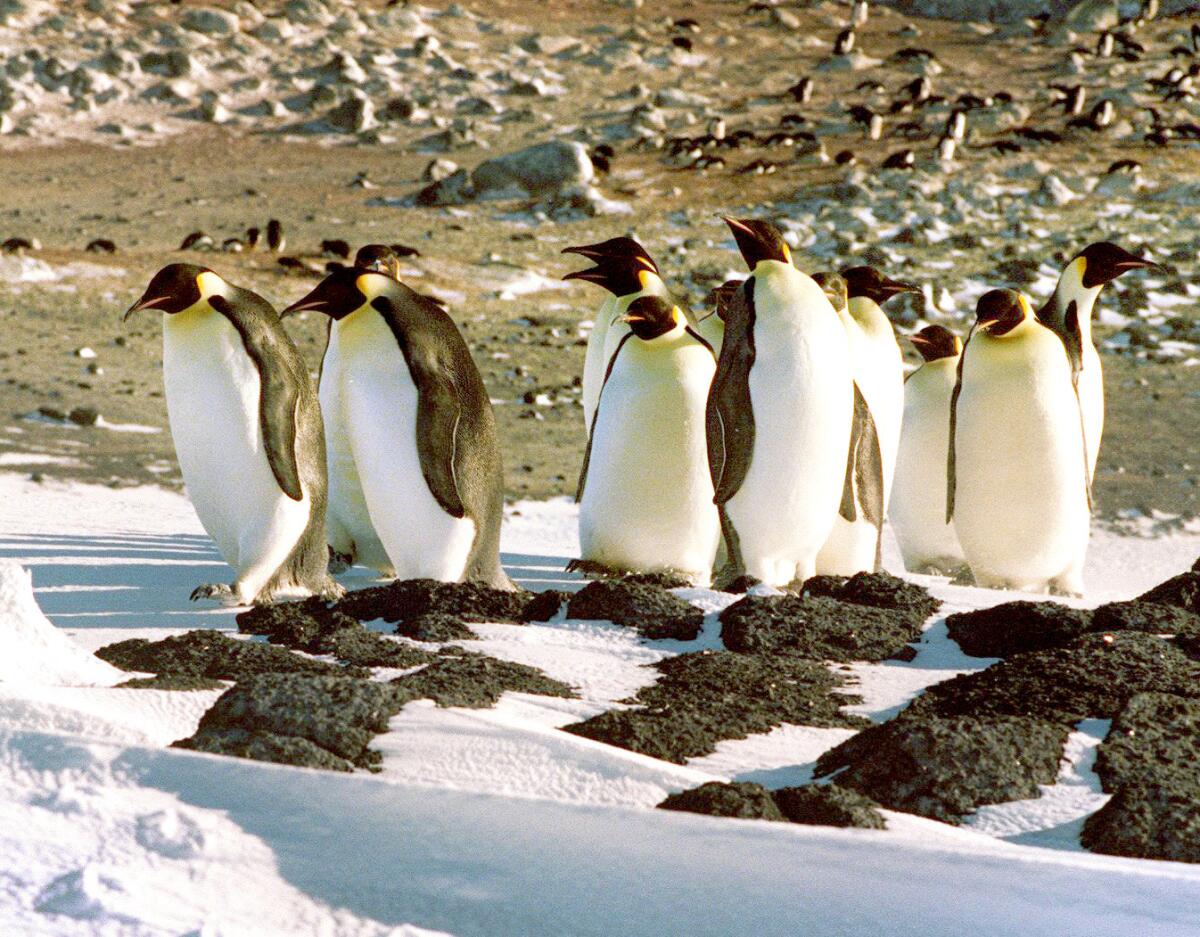Penguins have only two types of taste genes; no wonder they gulp their food

- Share via
It may not be worthwhile taking your penguin to Umami Burger, but it might do fine at a Seder.
Penguins don’t have the genetic ability to sense the meaty, savory “umami” taste, and they wouldn’t flinch at a peck of bitter herbs either, according to a new study.
The only taste genes left to the flightless tuxedoed birds are salty and sour, according to the study, published online Monday in the journal Current Biology.
It’s still not clear whether penguins actually do taste anything, given that scientists have been unable to find taste buds in their tongues. But it remains rather curious that they would have lost two types of taste that in other species can help differentiate good food from a potentially toxic meal.
The genetic mystery started when scientists in China sequenced the genomes of two penguin species, as part of a massive international project that cataloged the genetic code of 45 bird species.
No birds have the “sweet” taste gene anymore, so its absence was no surprise. But the researchers could not find two taste-related genes that other birds seem to have, and worried that their genome might have been poorly analyzed. So they emailed Jianzhi Zhang, a University of Michigan molecular biologist and longtime connoisseur of animal taste.
Zhang confirmed that the genome work was fine. “The genes that are supposed to be neighbors of those taste receptor genes were all there,” he said. “It’s just those specific taste genes that are missing.”
When Zhang looked at genomes from other penguin species, “We either couldn’t find those genes or we found genes but they were so-called pseudogenes, the relics of formerly functioning genes,” he said.
But among closely related tube-nosed sea birds such as albatrosses and petrels, “we were able to find umami and bitter receptor genes,” Zhang said.
That implies that the genes became dysfunctional sometime after the last common ancestor of both groups, about 60 million years ago, and before penguins radiated into separate species 20 million years ago, according to Zhang.
The loss of genetic sequence has had no apparent consequence, though. In fact, not only is there little evidence of taste buds on penguin tongues, the organs appear to be adapted more for catching and holding slippery fish, according to the study.
It’s not clear whether the tongue changes came before the loss of taste or as a result of it, the study noted.
Researchers believe the most plausible explanation for the flavor deletions might be that they simply don’t matter in the extreme cold of Antarctica.
A coding sequence called Trpm5 is known to help transduce several types of taste signals from buds to the brain, including umami, bitter and sweet - but not sour and salty, according to the study. Trpm5 signaling, however, fails as temperatures drop.
So maybe penguins were genetically able to “sense” umami and bitter, but were environmentally thwarted. Either way, it makes little difference in evolution. If random shuffling of the DNA doesn’t matter for survival, then these changes can accumulate enough to lead to pseudogenes that no longer work like their ancestral code once did.
Still, no one is sure if the remaining flavor genes matter to birds that gulp their food without chewing or pausing.
“It would be interesting to do a behavioral study to see if penguins have at least two tastes,” Zhang said.
Got a taste for science? Follow me on Twitter: @LATsciguy





